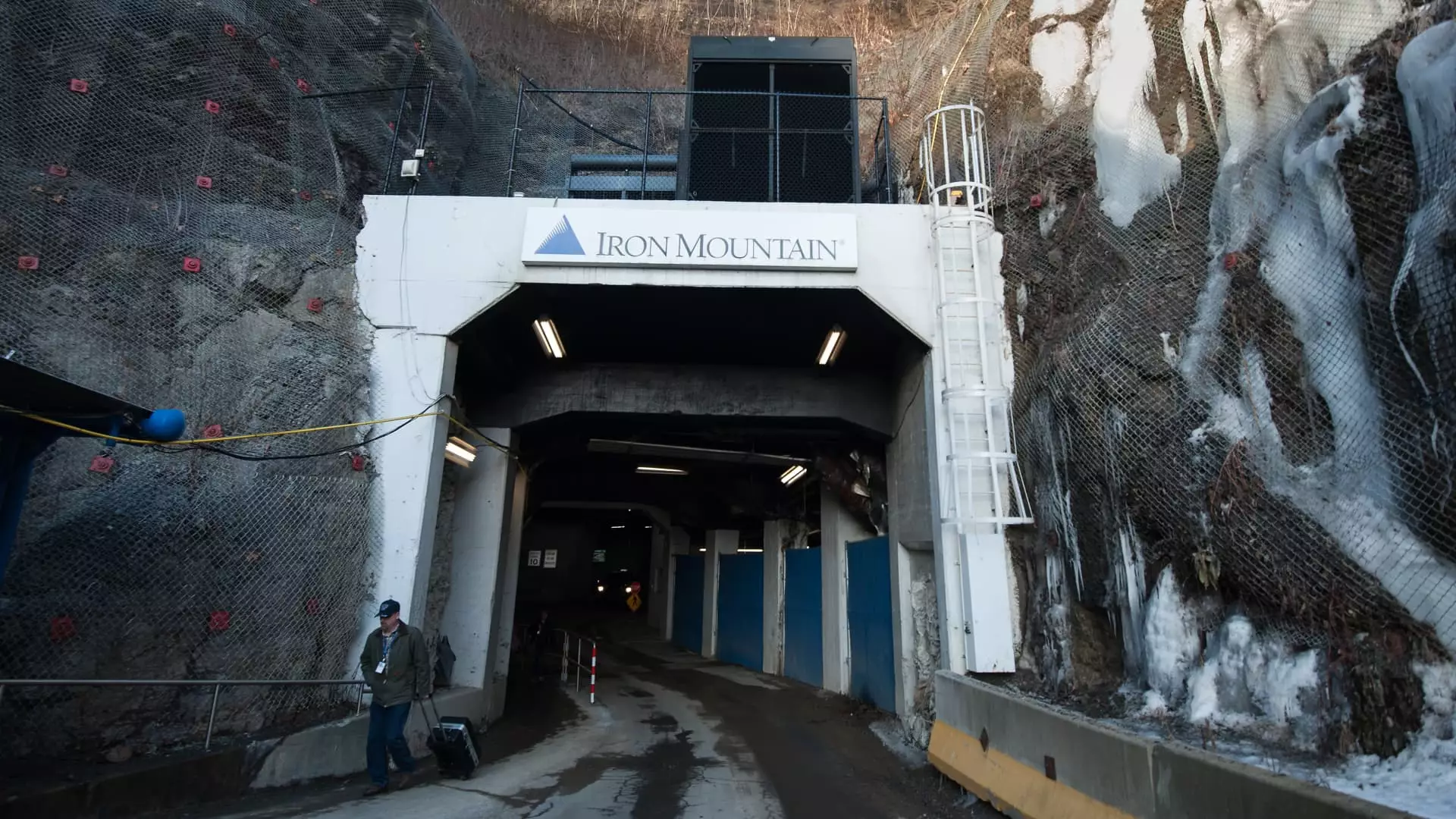In a striking public appearance, Elon Musk made headlines during a meeting with President Donald Trump in the Oval Office, where he highlighted his concerns regarding inefficiencies within the federal government. Musk, an entrepreneur known for pushing boundaries and challenging the status quo, expressed his frustration with outdated systems, notably focusing on a limestone mine, managed by Iron Mountain, used to store federal retirement paperwork. This incident not only sheds light on the peculiarities of government operations but also raises questions about how such critiques can influence corporate stakeholders, such as Iron Mountain itself.
During his impassioned discourse, Musk painted a vivid picture of a mining site that seemingly belongs to a bygone era. Established in 1955, the mine has become a symbol of what Musk perceives as the inefficiencies plaguing federal bureaucracy, where the speed of an elevator dictates the processing times for retirement applications. His rhetorical question, “Doesn’t that sound crazy?” encapsulates a frustration shared by many in the business community regarding government inefficiencies.
Following Musk’s comments, Iron Mountain experienced a notable drop in its stock prices, which raised alarms among investors. Iron Mountain, a company specializing in information management, including document storage and digital transformation solutions, found itself navigating uncharted waters. While the temporary fallout from Musk’s remarks stirred concern, Iron Mountain’s CEO, Bill Meaney, viewed this government efficiency initiative as a potential opportunity, underscoring the company’s existing engagements with federal agencies. Meaney reassured investors that Iron Mountain’s diversification into digital solutions could mitigate the risks posed by any potential cuts to federal contracts.
Iron Mountain is more than just a passive player in federal contracts; it actively collaborates with numerous government agencies to modernize outdated systems. With a revenue of approximately $130 million from digitization services, it dwarfs the meager $10 million earned from storing physical documents like retirement paperwork. Meaney emphasized the aligned goals of Iron Mountain and the government’s push toward increased efficiency, suggesting a strategic pivot toward embracing modern solutions could fortify the company’s standing even in the face of Musk’s criticisms.
However, the connection between Musk’s critique and Iron Mountain’s fortunes highlights a broader point: how the government interacts with its existing contractors can make or break their business prospects. While Musk’s scrutiny spotlighted the absurdities of reliance on physical storage in a digital age, it also underscored the need for both government and private sector adaptability in optimizing their operations.
The turbulence following Musk’s remarks led to varying interpretations among financial analysts. Some, like Wells Fargo’s Eric Luebchow, dismissed the stock’s decline as an overreaction, pointing out that Iron Mountain’s revenue is not overly dependent on any single client. This view suggests that even in the face of potential contract eliminations, Iron Mountain’s diverse portfolio positions it for resilience. Additionally, analysts indicated that termination fees, should the government sever ties, could cushion the blow, further relieving investor anxiety.
Conversely, the apprehension within the market calls attention to the precarious balance companies must maintain when dealing with government contracts. As Musk’s public commentary demonstrated, even a single remark can ripple through financial markets and reshape investor confidence. Companies in similar positions might need to recalibrate their risk management strategies to hedge against public perceptions and unforeseen critiques.
Musk’s statements and the immediate aftermath illustrate a crucial dynamic in the relationship between private enterprises and government contracts. As federal officials face pressure to justify spending and accelerate efficiency, companies like Iron Mountain must adapt or risk becoming outdated relics of a less efficient era. The instance serves as a case study in corporate vulnerability and the importance of staying ahead of operational innovation to align with government priorities.
Iron Mountain’s evolution into a digital solutions provider amid Musk’s candid revelations may serve as a template for other firms seeking to thrive in an environment increasingly focused on efficacy. The reality of compliance, accountability, and the enduring need for data security will always anchor government operations, yet a transformation toward innovation offers promise.
Elon Musk’s remarks about government inefficiency interact with broader themes of modernization and corporate strategy in a highly interconnected environment. The challenges and opportunities faced by Iron Mountain epitomize the delicate balance of corporate growth versus governmental scrutiny. As both the federal government and companies navigate this evolving landscape, the call for efficiency will likely prompt ongoing transformations that prioritize not only functionality but also innovation—ultimately shaping the regulatory and business environments of tomorrow.

